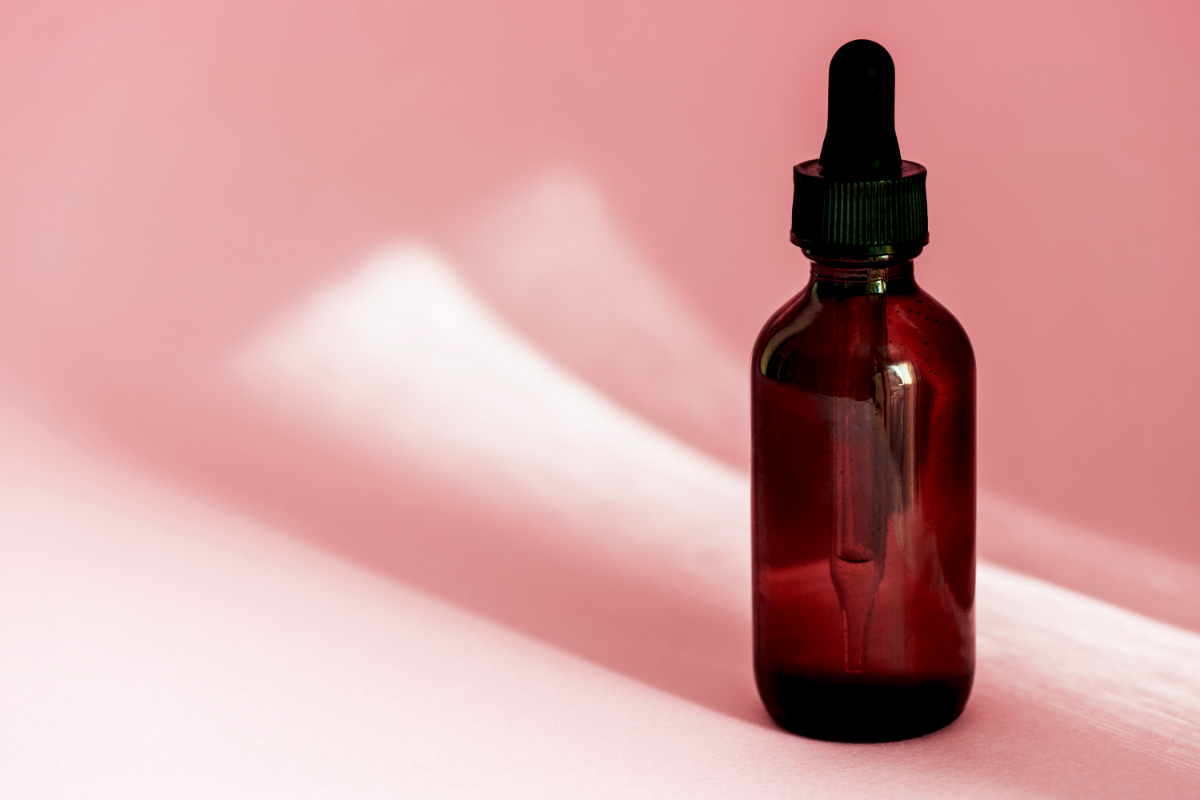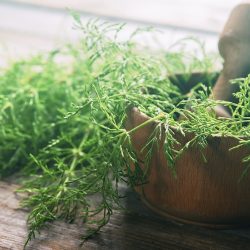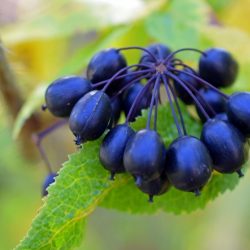Over the years, interest in natural products has grown considerably. Among these products, mountain ash bud is attracting attention for its many health benefits. What is mountain ash bud? And what are its real benefits for our well-being?
Discover the exceptional virtues of mountain ash bud, an often underestimated treasure of nature. Used for centuries in traditional medicine, this bud is a concentrate of health benefits. Rich in flavonoids and antioxidants, mountain ash buds offer unique protection against external aggressors and strengthen the immune system. In this article, we take an in-depth look at the many benefits of these little buds, from their anti-inflammatory properties to their positive impact on cardiovascular and digestive health. Follow us on this journey to the heart of the benefits of mountain ash bud.
How does gemmotherapy work?
Gemmotherapy, updated by Dr. Pol Henry, is a therapeutic approach that uses young shoots and fresh buds, such as lime bud (Tilia tomentosa), chestnut bud and mountain ash (Sorbus domestica), for their unique medicinal properties. This method is based on the idea that these embryonic parts of the plant, still in full growth, concentrate the essential active principles of the future plant.
The heart of the preparation lies in the creation of the bud macerate. This process begins by macerating fresh buds in a mixture of alcohol, water and plant glycerine. Vegetable glycerine plays a crucial role, serving to preserve the active ingredients and sensitive plant substances. This macerate extracts a full spectrum of active ingredients, providing a holistic remedy.
These gemmotherapy extracts are often considered to be food supplements and are used to treat a variety of conditions. For example, sorbus domestica buds are reputed to have a beneficial effect on vein walls and heart rhythm, while lime buds are known to help regulate cerebral fluid and soothe hot flushes. In addition, some macerates can act as blood thinners, positively influencing circulation.
Gemmotherapy remedies act in synergy with the body, helping to strengthen and balance organic functions. Chestnut bud, for example, is often used for its beneficial effects on the heart muscle and circulatory systems.
Although gemmotherapy is gaining in recognition, it is essential to note that scientific research in this field is still being developed. Therefore, the use of these remedies should be done with discernment and, ideally, under the supervision of a qualified health professional.
What are the benefits of mountain ash bud?
In addition to its immunostimulant and protective properties for the skin and digestion, mountain ash bud is also known for its beneficial effects on the blood and lymphatic systems. It is useful for treating venous disorders such as varicose veins and phlebitis, as well as symptoms of tinnitus and hypoacusis. It also contributes to hormonal balance during the menopause, alleviating hot flushes, and offers support in the event of migraines thanks to its anti-inflammatory properties.
Does rowan bud stimulate the immune system?
The immune system is a complex biological machinery that protects us against a myriad of threats, from pathogenic micro-organisms to malignant cells. It is in this context that mountain ash bud can play a vital role as a naturalsupport agent for the immune system.
Mountain ash buds are a rich source of vitamins, minerals and antioxidants. The latter, particularly flavonoids, have been associated with a variety of health benefits, including protection against viral infections, inflammatory reactions and allergic reactions.
What is the role of flavonoids?
- Flavonoids are organic compounds widely distributed in the plant kingdom. These molecules are known for their antiviral activities. For example, they can inhibit the attachment and entry of the virus into host cells, or interfere with the viral proteins essential for replication.
- Flavonoids are also known for their anti-inflammatory properties. They can modulate the inflammatory response by inhibiting the production and activity of various pro-inflammatory molecules, such as cytokines and enzymes of the nitric oxide pathway.
- Finally, flavonoids can also have an anti-allergic effect. They inhibit the release of histamine by mast cells, the cells responsible for allergic reactions. As a result, they can help prevent and reduce allergy symptoms.
As a result, mountain ash bud, which is rich in flavonoids, could potentially help to strengthen the immune system and protect the body against a variety of threats. However, although these mechanisms have been demonstrated in vitro and in animals, further studies in humans are needed to confirm these beneficial effects.
Mountain ash bud for the skin
The skin, as the first line of defence against environmental factors, is constantly exposed to a variety of harmful elements, such as the sun’s ultraviolet (UV) rays and atmospheric pollutants. These aggressors can induce oxidative stress, characterised by the excessive production of free radicals, unstable molecules that can damage skin cells and accelerate the skin’s ageing process. In this context, mountain ash bud could provide a natural solution for boosting skin health thanks to its powerful antioxidants.
- Mountain ash buds are an abundant source of antioxidants, particularly flavonoids. These molecules are capable of neutralising free radicals and reducing oxidative stress. Numerous studies have shown that antioxidants can protect the skin from UV damage, reduce inflammation and prevent skin ageing.
- Flavonoids can also promote the production of collagen, an essential protein for skin health and elasticity. Collagen is one of the main components of the dermis, the skin’s underlying layer. By stimulating collagen synthesis, flavonoids can help prevent and reduce wrinkles and other signs of skin ageing.
- Mountain ash buds also contain vitamins, such as vitamin C, which also play an important role in skin health. Vitamin C is a powerful antioxidant that can neutralise free radicals and stimulate collagen production.
Mountain Ash bud and digestive health
The digestive system plays an essential role in overall health, being responsible not only for digestion and absorption of nutrients, but also for numerous immune and metabolic functions. Mountain Ash bud, with its rich and varied nutritional profile, can make a significant contribution to digestive health.
Do flavonoids improve digestion?
The flavonoids present in rowan buds can have a beneficial effect on the intestinal flora, also known as the microbiota. Billions of micro-organisms, including bacteria, viruses and fungi, live in symbiosis in our intestine and make it up. Flavonoids can influence the composition of this intestinal flora, promoting the growth of beneficial bacteria and inhibiting that of pathogenic bacteria.
Flavonoids can also aid digestion by stimulating the secretion of digestive juices and improving intestinal motility. They also have anti-inflammatory properties, which can be particularly beneficial in the context of inflammatory bowel diseases such as Crohn’s disease or ulcerative colitis. By reducing inflammation, flavonoids can help relieve the symptoms associated with these conditions, such as abdominal pain and transit disorders.
Mountain ash bud is also a source of dietary fibre, which plays an important role in digestive health. Fibre can help regulate intestinal transit, prevent constipation and contribute to a feeling of satiety. It can also nourish the intestinal flora and promote the production of certain short-chain fatty acids beneficial to intestinal health.
Is rowan bud good for cardiovascular health?
Cardiovascular health is a major area of public health, with cardiovascular disease being one of the main causes of death worldwide. A great deal of research has therefore focused on natural ways of preventing these diseases and maintaining good cardiovascular health. Thanks to its bioactive compounds, such as flavonoids, it could offer significant benefits in this area.
What are the effects of flavonoids on the heart?
Flavonoids have demonstrated a variety of beneficial effects on cardiovascular health in several studies. For example, they may help to reduce the oxidation of LDL cholesterol. Low-density lipoprotein is a key risk factor for cardiovascular disease. Indeed, oxidised LDL cholesterol can deposit in artery walls and contribute to the formation of atherosclerotic plaques, leading to conditions such as myocardial infarction or stroke.
Flavonoids can also help maintain healthy bloodpressure. Several studies have shown that regular consumption of flavonoids is associated with a reduction in systolic blood pressure, another major risk factor for cardiovascular disease.
In addition, these compounds have anti-inflammatory and antithrombotic properties, which may be beneficial for cardiovascular health. Indeed, inflammation and excessive coagulation are contributory factors in various cardiovascular diseases.
Blood and lymphatic system
Mountain Ash bud is recognised for its effectiveness in treating vascular and lymphatic disorders. It helps reduce symptoms of tinnitus and hearing loss, and is beneficial for people suffering from varicose veins, phlebitis or varicose ulcers. Its circulatory properties also help to relieve the sensation of heavy legs and reduce oedema.
Uro-genital system
The active constituents of mountain ash bud can reduce the discomfort associated with the menopause, particularly hot flushes. They work by balancing hormones and reducing the symptoms associated with this period of change.
Nervous system
For people suffering from migraines, rowan bud can offer support thanks to its calming properties. It can help reduce the frequency and intensity of migraines by acting on the inflammatory processes associated with these pains.
How is rowan bud used?
| Age group | Dosage | Method of administration | Duration |
|---|---|---|---|
| Adults and adolescents | 5 to 15 drops/day | Divide the drops into 1 to 3 daily doses in a glass of water, 15 minutes before meals. Start with 5 drops, then gradually increase by one drop a day up to 15, or by 5 drops the first week, 10 the second and 15 the last. | 3 weeks |
| Children over 3 years of age | 1 drop per 10 kg body weight/day | Start with 1 drop and gradually increase according to weight. | As required |
For adults and adolescents, it is recommended to start with a low dose and increase gradually to allow the body to get used to it. For children, the dosage is adjusted according to weight, allowing safe, developmentally appropriate use.
Precautions for use
Mountain Ash bud macerate should be used as a dietary supplement and not as a substitute for a varied, healthy diet. It is essential to keep it out of the reach of children and to respect the recommended daily dose. Dosages should be adapted for young children. This macerate is not recommended for babies under 3 years of age or pregnant women. It is important to store it in a dark, cool place.
Quiz: All about rowan bud and gemmotherapy
- What is one of the main components of mountain ash bud? a) Vitamin C b) Flavonoids c) Caffeine
- For what type of problem is mountain ash bud particularly effective? a) Digestive b) Circulatory c) Respiratory
- What is the earliest age at which Mountain Ash bud macerate can be used? a) From birth b) Over 3 years old c) Over 12 years old
- What precautions are important when using Mountain Ash bud macerate? a) Keep refrigerated b) Use externally only c) Do not exceed the recommended daily dose
- What is one of the main actions of the flavonoids present in mountain ash bud? a) Stimulate appetite b) Act as antioxidants c) Increase physical energy
- Answer : b) Flavonoids
- Answer : b) Circulatory
- Answer: b) Over 3 years
- Answer : c) Do not exceed the recommended daily intake
- Answer : b) Act as antioxidants
We invite you to share your answers in comments and discuss what you know about mountain ash buds and gemmotherapy! It’s a great way to learn more and talk to other enthusiasts.
Sources :
- Antiviral effects of flavonoids
- Anti-inflammatory properties of flavonoids
- Antiallergic effects of flavonoids, Journal of Allergy
- Flavonoids as Promising Natural Compounds in the Prevention and Treatment of Selected Skin Diseases
- Collagen synthesis and skin health, Journal of Cosmetic Dermatology
- Vitamin C in dermatology, Indian Dermatology Online Journal, 2013







